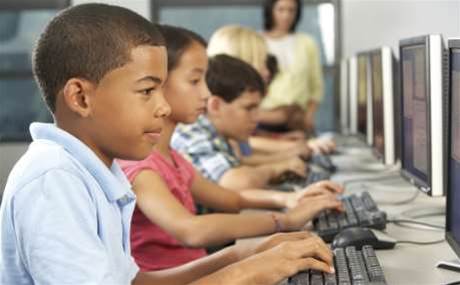Heavy investment in technology for school children does not result in improved reading, mathematics or science skills, a new report by the Organisation for Economic Co-operation and Development (OECD) has found.

The OECD said teaching students basic literacy and numeracy did more to create equal opportunities in a digital world "than solely expanding or subsidising access to high-tech devices and services".
The organisation studied the results of the 59-nation 2012 Program for International Student Assessment (PISA) student performance measurement, testing more than 500,000 15 year old students on a variety of skills including ICT.
They were asked to use a keyboard and mouse to "navigate texts by using tools like hyperlinks, browser button or scrolling, in order to access information, as well as make a chart from data or use on-screen calculators". The US and UK were not included in the assessment.
The OECD's resulting Students, Computers and Learning: Making the Connection report found that academic achievement was more likely the result of socio-economic factors than access to technology.
"PISA results show no appreciable improvements in student achievement in reading, mathematics or science in the countries that had invested heavily in ICT for education," OECD education director Andreas Schleicher said.
In order to reduce inequalities in digital skills, the report suggests, "countries need to improve equity in education first".
"As long as computers and the internet continue to have a central role in our personal and professional lives, students who have not acquired basic skills in reading, writing and navigating through a digital landscape will find themselves unable to participate fully in the economic, social and cultural life around them," the report stated.
"[The results show] that once the so-called "first digital divide" (access to computers) is bridged, the remaining difference between socio-economic groups in the ability to use ICT tools for learning is largely, if not entirely, explained by the difference observed in more traditional academic abilities."
Part of the problem is that schools haven't yet figured out how to use technology to make a difference in learning, according to the report.
"If students use smartphones to copy and paste prefabricated answers to questions, it is unlikely to make them smarter," Schleicher said.
"If we want students to become smarter than a smartphone, we need to think harder about the pedagogies we are using to teach them. Technology can amplify great teaching but great technology cannot replace poor teaching."
Australia on average has one student using a computer in schools compared to an OECD average of almost 5.
Just under 94 percent of Australian students use computers at school, according to the report, while the OECD average sits at 72 percent.
Around 80 percent of Australian schoolchildren say they browse the internet for schoolwork at least once a week during school hours. Throughought the OECD that average comes in almost half at 42 percent.
After hours on school days, 75 percent of Australian students say they browse the internet at least once a week for education purposes, compared to a 55 percent OECD average.



.png&h=140&w=231&c=1&s=0)
_(20).jpg&h=140&w=231&c=1&s=0)






 iTnews Executive Retreat - Security Leaders Edition
iTnews Executive Retreat - Security Leaders Edition











_(1).jpg&h=140&w=231&c=1&s=0)



